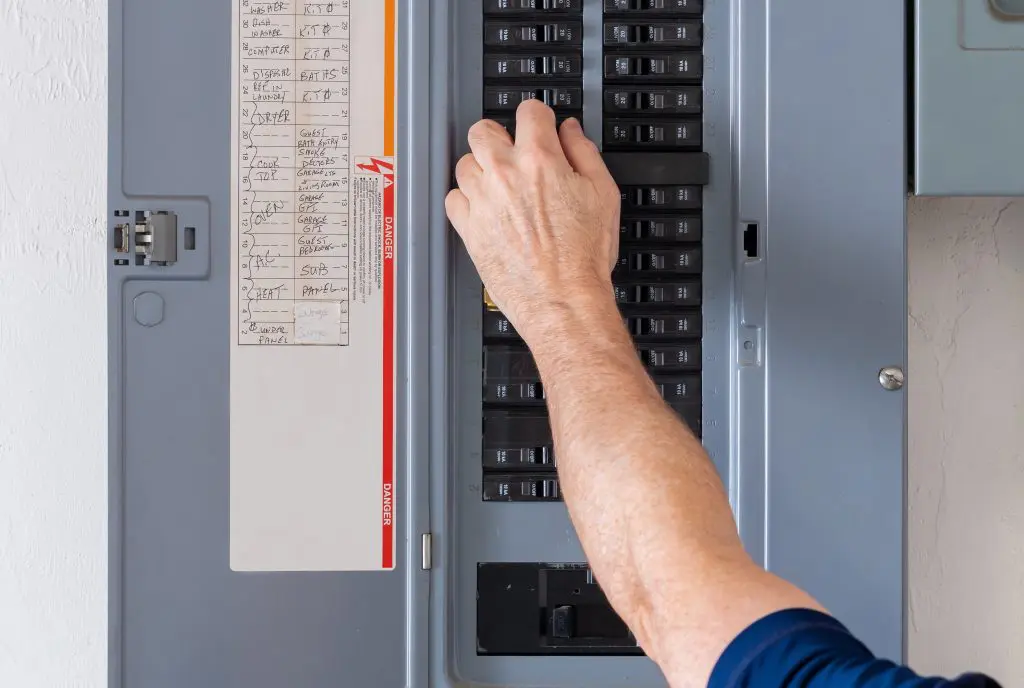Introduction: In the realm of home safety and efficiency, few things are as crucial as the electrical panel. Often overlooked, yet indispensable, the electrical panel serves as the nerve center of your home’s electrical system. As technology advances and energy demands increase, the need for electrical panel upgrades becomes more pressing. This comprehensive guide will delve into the importance of electrical panel upgrades, their benefits, signs indicating when an upgrade is necessary, the upgrade process, and tips for choosing the right professionals for the job.
Contents
- 0.1 Understanding Electrical Panels:
- 0.2 Importance of Electrical Panel Upgrades:
- 0.3 Safety Enhancement:
- 0.4 Increased Capacity:
- 0.5 Energy Efficiency:
- 0.6 Signs You Need an Electrical Panel Upgrade:
- 0.7 Frequent Circuit Breaker Tripping:
- 0.8 Outdated Panel:
- 0.9 Overloaded Circuits:
- 0.10 Home Renovations:
- 0.11 Consultation and Assessment:
- 0.12 Permitting:
- 0.13 Panel Installation:
- 0.14 Circuit Testing:
- 0.15 Final Inspection:
- 0.16 Choosing the Right Professionals:
- 0.17 Licensing and Certification:
- 0.18 Experience and Reputation:
- 0.19 Transparent Pricing:
- 0.20 Communication and Collaboration:
- 1 Conclusion:
Understanding Electrical Panels:
Before delving into upgrades, it’s essential to understand the role of electrical panels in your home. An electrical panel, also known as a breaker box or distribution board, serves as the central hub that distributes electricity from the main power line to various circuits throughout your home. It contains circuit breakers or fuses that protect your electrical system from overloads and short circuits by interrupting the flow of electricity when necessary.
Importance of Electrical Panel Upgrades:
Over time, the electrical demands of households evolve due to the addition of new appliances, electronics, and technologies. Older homes, in particular, may have electrical panels that are outdated and unable to cope with modern energy requirements. Upgrading your electrical panel is essential for several reasons:
Safety Enhancement:
Outdated electrical panels may not meet current safety standards and could pose fire hazards due to overloaded circuits or faulty wiring. Upgrading to a modern panel with advanced safety features can significantly reduce the risk of electrical fires and other hazards.
Increased Capacity:
Modern lifestyles demand more electricity than ever before. Upgrading your electrical panel allows for increased capacity to accommodate additional appliances, home renovations, or future technological advancements.
Energy Efficiency:
Newer electrical panels are designed to operate more efficiently, reducing energy waste and lowering utility bills. They also provide better control over energy consumption through features like smart meters and energy monitoring systems.
Signs You Need an Electrical Panel Upgrade:
Determining whether your home requires an electrical panel upgrade involves recognizing certain signs and symptoms:
Frequent Circuit Breaker Tripping:
If your circuit breakers trip frequently, it could indicate that your electrical panel is struggling to handle the load. This often occurs in older panels with limited capacity.
Outdated Panel:
Homes built several decades ago may still have electrical panels with fuses instead of circuit breakers. These panels are not only outdated but also less safe than modern breaker panels.
Overloaded Circuits:
Adding new appliances or electronics to your home can overload existing circuits, leading to flickering lights, buzzing outlets, or overheated electrical panels.
Home Renovations:
If you’re planning a home renovation or addition, it’s wise to assess whether your current electrical panel can support the increased electrical demand. Upgrading beforehand can prevent issues down the road.
The Electrical Panel Upgrade Process: Once you’ve determined that an electrical panel upgrade is necessary, the next step is understanding the upgrade process:
Consultation and Assessment:
Begin by consulting with a licensed electrician who can assess your current electrical panel and discuss your specific needs and preferences. They will determine the appropriate size and type of panel for your home.
Permitting:
In many jurisdictions, electrical panel upgrades require permits from local authorities. Your electrician will handle the necessary paperwork and ensure compliance with building codes and regulations.
Panel Installation:
The electrician will disconnect power to your home, remove the old electrical panel, and install the new panel in its place. This may involve upgrading wiring and making other necessary adjustments to ensure compatibility and safety.
Circuit Testing:
Once the new panel is installed, the electrician will test each circuit to ensure proper functionality and safety. This includes checking for proper voltage, grounding, and circuit integrity.
Final Inspection:
After completing the installation and testing, a final inspection may be required to verify that the upgrade meets all regulatory requirements and safety standards.
Choosing the Right Professionals:
When it comes to electrical panel upgrades, choosing the right professionals is paramount. Here are some tips for selecting a qualified electrician:
Licensing and Certification:
Verify that the electrician is licensed, bonded, and insured to perform electrical work in your area. Look for certifications from reputable organizations like the National Electrical Contractors Association (NECA) or the International Association of Electrical Inspectors (IAEI).
Experience and Reputation:
Choose an electrician with extensive experience in performing electrical panel upgrades. Check online reviews and ask for references from past clients to gauge their reputation and reliability.
Transparent Pricing:
Request detailed quotes from multiple electricians and compare their pricing and services. Beware of unusually low prices, as they may indicate subpar workmanship or hidden fees.
Communication and Collaboration:
Choose an electrician who communicates openly and listens to your concerns and preferences. They should be willing to answer your questions and provide guidance throughout the upgrade process.
Conclusion:
Electrical panel upgrades are crucial for ensuring the safety, efficiency, and functionality of your home’s electrical system. By understanding the importance of upgrades, recognizing signs indicating when an upgrade is necessary, and following the upgrade process outlined in this guide, you can enhance the safety and comfort of your home for years to come. Remember to choose qualified professionals who prioritize safety and quality workmanship when undertaking electrical panel upgrades.






